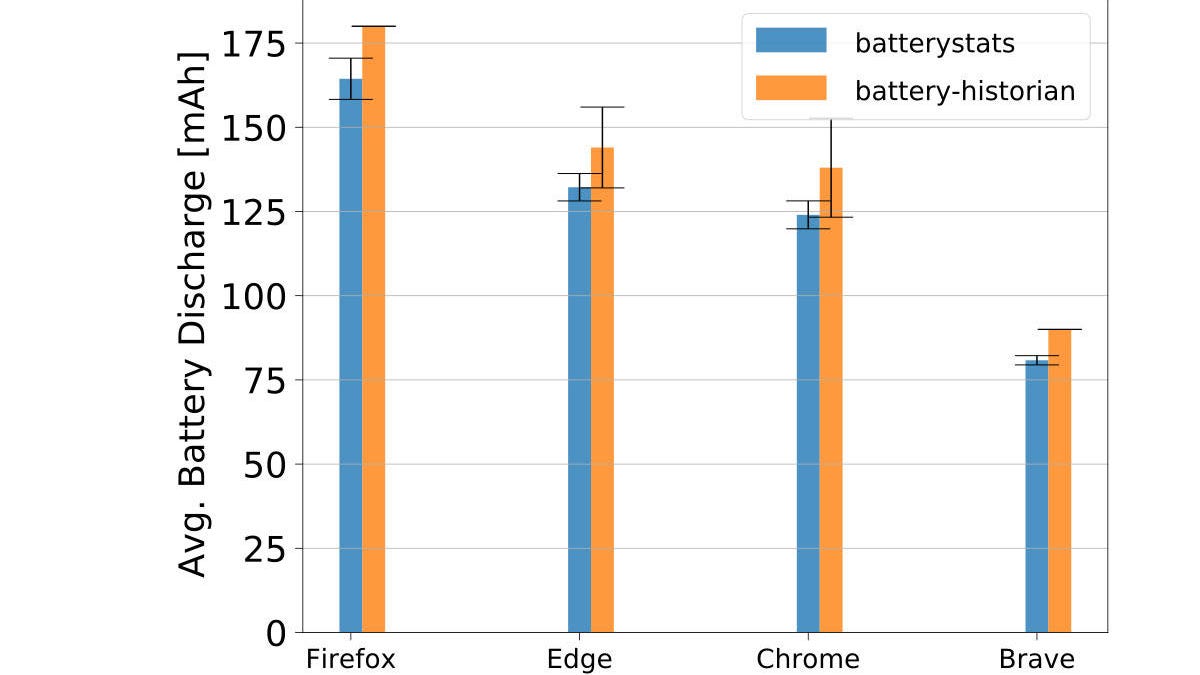Brave uses 35 percent less power than Chrome for Android, startup says
The advantage comes through blocking ads, and the test was on ad-heavy websites.
The Android version of the Brave browser uses 35 percent less power than Google's Chrome on ad-heavy websites, Brave said Wednesday, highlighting a major difference in a world where we often have to keep a close eye on our phone battery.
On tests loading 20 news sites on a Samsung Galaxy S9 phone, Brave's lower power consumption would let you browse the web for 6.8 hours compared with 4.4 hours for Chrome before your battery died. The advantage over Microsoft's Edge was a bit more -- 39 percent less -- and compared with Firefox , Brave used 50 percent less, Brave said.
Brave uses Chrome's core browser technology, called Chromium, but it blocks ads and ad-tracking software by default. That means it uses the network less and saves power, said Brave performance researcher Matteo Varvello and Chief Scientist Ben Livshits in a blog post Wednesday.
Power savings are crucial on mobile devices like phones , laptops and smartwatches that may have to run for hours without charging. Two weeks ago, Brave said its browser benefits a similarly scarce resource, memory, compared with rivals.
Blocking ads is no fun for websites that depend on advertising, of course. Brave is building its own privacy-respecting ad technology to try to satisfy that demand.
The Brave browser logo
Although Brave fared better than rivals, there's nothing stopping it from blocking ads and trackers. Indeed, that sort of intervention is becoming more common among browsers to protect privacy and thwart abuse. Brave presently goes farther than Safari, Firefox, Chrome and other browsers when it comes to blocking ads and trackers, though.
Brave's study findings are, broadly, similar to another assessment of browser power usage by Greenspector, a startup focused on monitoring energy consumption.
Google, Mozilla and Microsoft didn't immediately comment.
Brave also compared its browser with ad-blocking browsers including Firefox with the uBlock Origin ad blocker, Firefox Focus, Kiwi and Adblock Browser. There, Brave used about 20 percent less power, a finding the startup attributed to lower demands on the phone's processor.
The company announced the findings at the MWC 2019 mobile show in Barcelona, Spain.


